
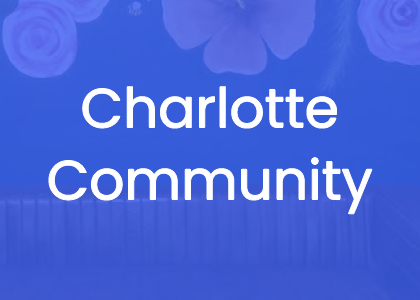
Charlotte
We look forward to welcoming you to the Queen City! Charlotte is a Southern jewel whose inclusive community and rich culture give voice to a sense of belonging. The community is brimming with diversity, creativity, and the drive to discover new opportunities and possibilities. Together, during The Wellbeing Summit we will explore this vibrant city.
To help peak your interest we’ve compiled a list of locally owned restaurants and stores that we encourage you to support while in Charlotte. For more information on things to do, places to eat, events taking place, getting around and much more, visit the Charlotte Regional Visitor’s Authority.
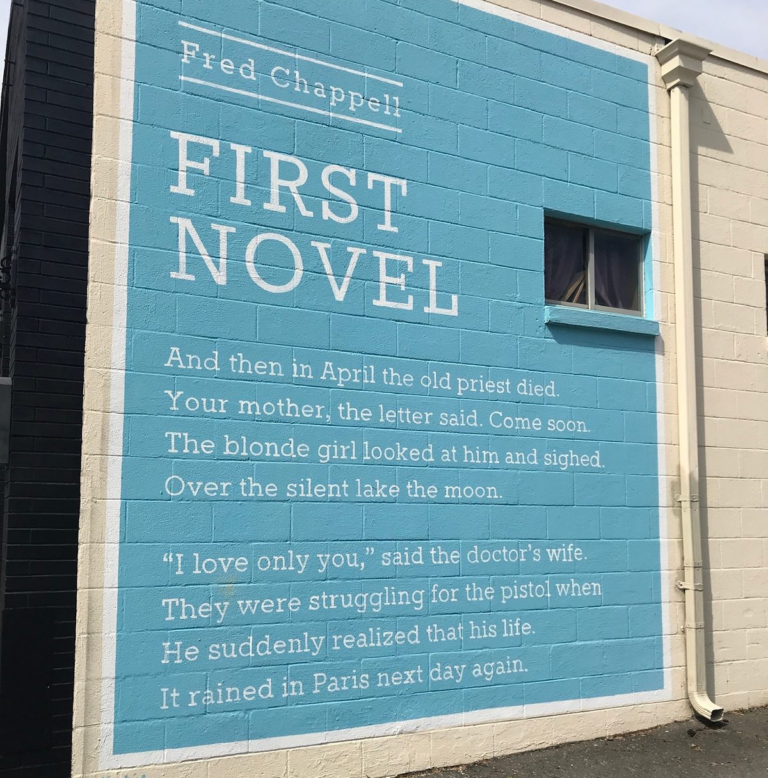
Restaurants
Food Trucks
Restaurants
Food Trucks
Local Businesses

The Pauline Tea-Bar Apothecary is an herbal tea lounge that touches all of the senses with healing elements. From the warm inviting decor, the soothing aroma of the diffused essential oils, to the special complimentary pastries - patrons are invited to unplug from the cares of the day, enjoy quiet respite or gather delightfully with others. Come unplug, relax, and enjoy a cup of serenity.
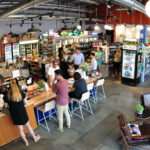
We are a neighborhood market and deli that fulfills the various needs of urban foragers like you! We strive to give our customers the best service possible and provide a relaxing and fun environment for everyone. If you just want to hang out, have a cup of coffee, have a business meeting, or share a bottle of wine — we have a great atmosphere for almost any occasion!

The Cocktailery is a cocktail supply and beverage lifestyle shop designed for the craft cocktail enthusiast. We carry an assortment of quality barware and accessories that blend functionality and presentation. Our products and cocktail classes are designed to enhance your ability to create cocktails that are simple, sophisticated and memorable.
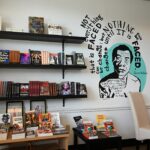
What’s unique about Urban Reader Bookstore, a bookstore specializing in African American books—thousands of new books—and its personalized service: once we know what you’re looking for, we will buy accordingly and ship it to your home or business.
Additional Sites
Second Ward – Brooklyn Community
“The Brooklyn community lay in what is now Second Ward, an area of Charlotte that was geographically lower than the other four wards, and for sewage and sanitation purposes, made living there hazardous. An 1892 Charlotte Townships map identified the area as ‘Logtown.’ After emancipation, the area drew recently emancipated slaves. The community’s Black population continued to grow throughout the nineteenth-century and was ‘solidly black except for Trade, Tryon, College, and parts of Fourth Street,’ when the first racially patterned map of Charlotte was drawn in 1917. At the same time, Logtown gave way to Brooklyn; a name that would become synonymous with the Black community until urban renewal.
In its heyday, Brooklyn was a thriving Black business center; ‘an African American city-within-the-city, complete with its own downtown.’ While the socio-economic level of residents spanned from shanty housing, like Blue Heaven, to the homes of Charlotte’s Black professionals, the community marked many ‘firsts’ for Charlotte’s Black residents.”
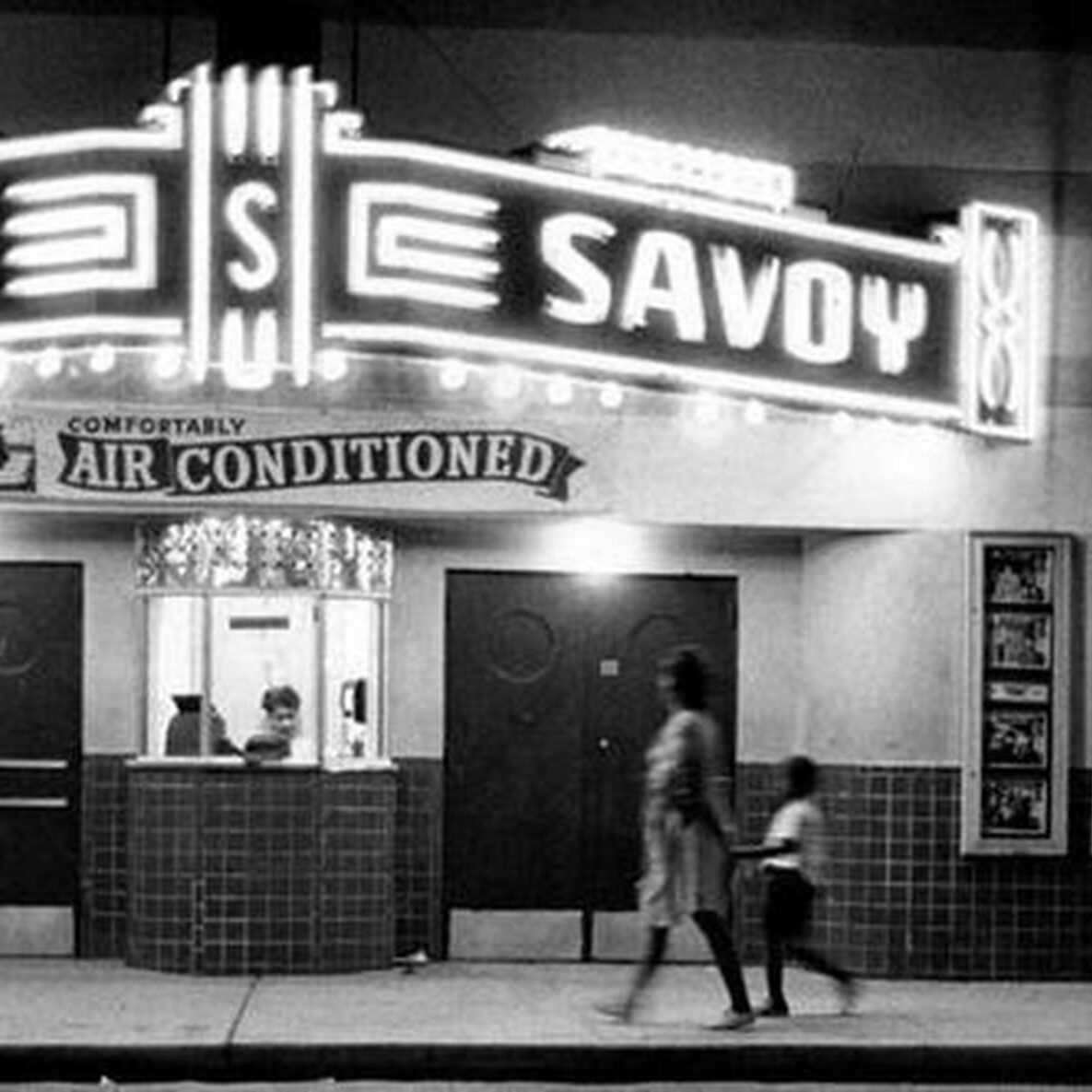

Second Ward – Brooklyn Community
“The Brooklyn community lay in what is now Second Ward, an area of Charlotte that was geographically lower than the other four wards, and for sewage and sanitation purposes, made living there hazardous. An 1892 Charlotte Townships map identified the area as ‘Logtown.’ After emancipation, the area drew recently emancipated slaves. The community’s Black population continued to grow throughout the nineteenth-century and was ‘solidly black except for Trade, Tryon, College, and parts of Fourth Street,’ when the first racially patterned map of Charlotte was drawn in 1917. At the same time, Logtown gave way to Brooklyn; a name that would become synonymous with the Black community until urban renewal.
In its heyday, Brooklyn was a thriving Black business center; ‘an African American city-within-the-city, complete with its own downtown.’ While the socio-economic level of residents spanned from shanty housing, like Blue Heaven, to the homes of Charlotte’s Black professionals, the community marked many ‘firsts’ for Charlotte’s Black residents.”
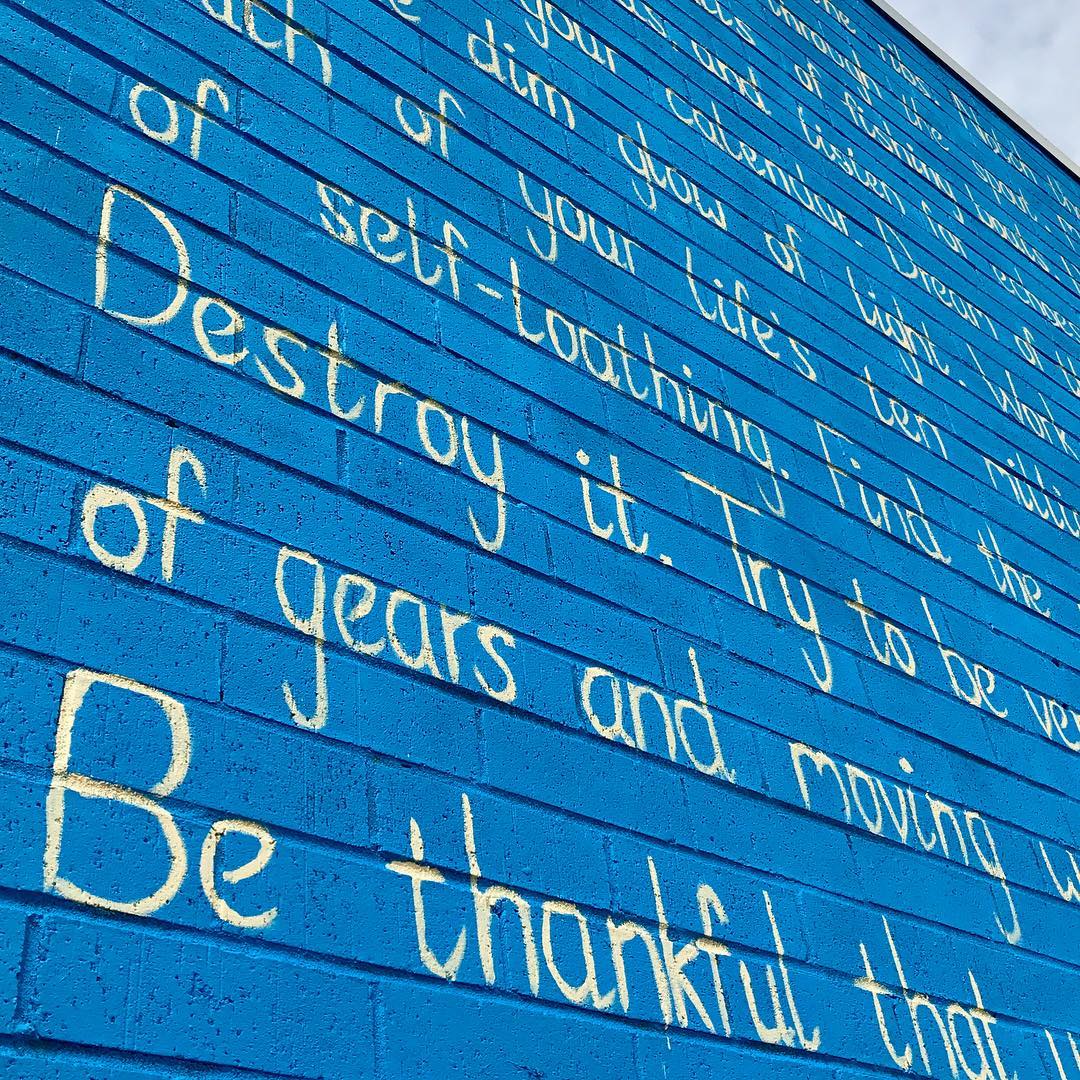
Wall Poems of Charlotte
“The idea behind the Wall Poems project is to make poetry more accessible by putting it in highly visible areas. All poems are by writers from North Carolina, including Carl Sandberg, Charles Olsen and Robert Creeley. They do have permission to paint the walls; in fact, many of the paintings are done by request.”

Wall Poems of Charlotte
“The idea behind the Wall Poems project is to make poetry more accessible by putting it in highly visible areas. All poems are by writers from North Carolina, including Carl Sandberg, Charles Olsen and Robert Creeley. They do have permission to paint the walls; in fact, many of the paintings are done by request.”
The Green
The Green is a one and a half acre park at 400 South Tryon Street in uptown Charlotte, North Carolina. At one end of this so-called pocket park are the Mint Museum and the Bechtler Museum of Modern Art; at the other end is the Charlotte Convention Center.
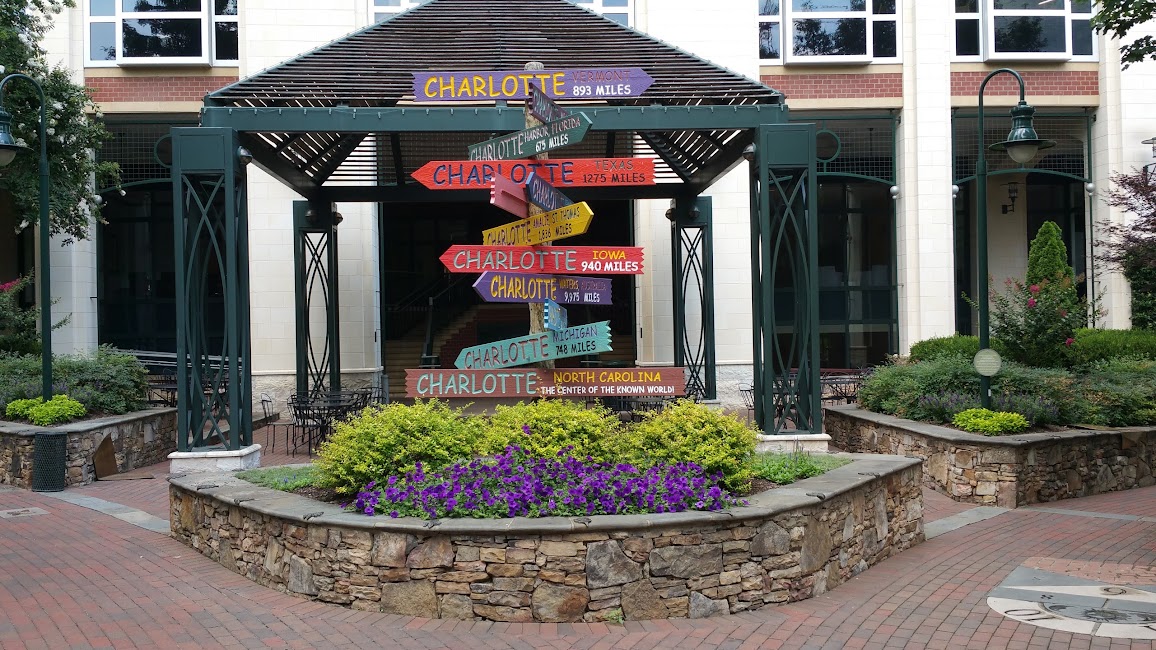

The Green
The Green is a one and a half acre park at 400 South Tryon Street in uptown Charlotte, North Carolina. At one end of this so-called pocket park are the Mint Museum and the Bechtler Museum of Modern Art; at the other end is the Charlotte Convention Center.
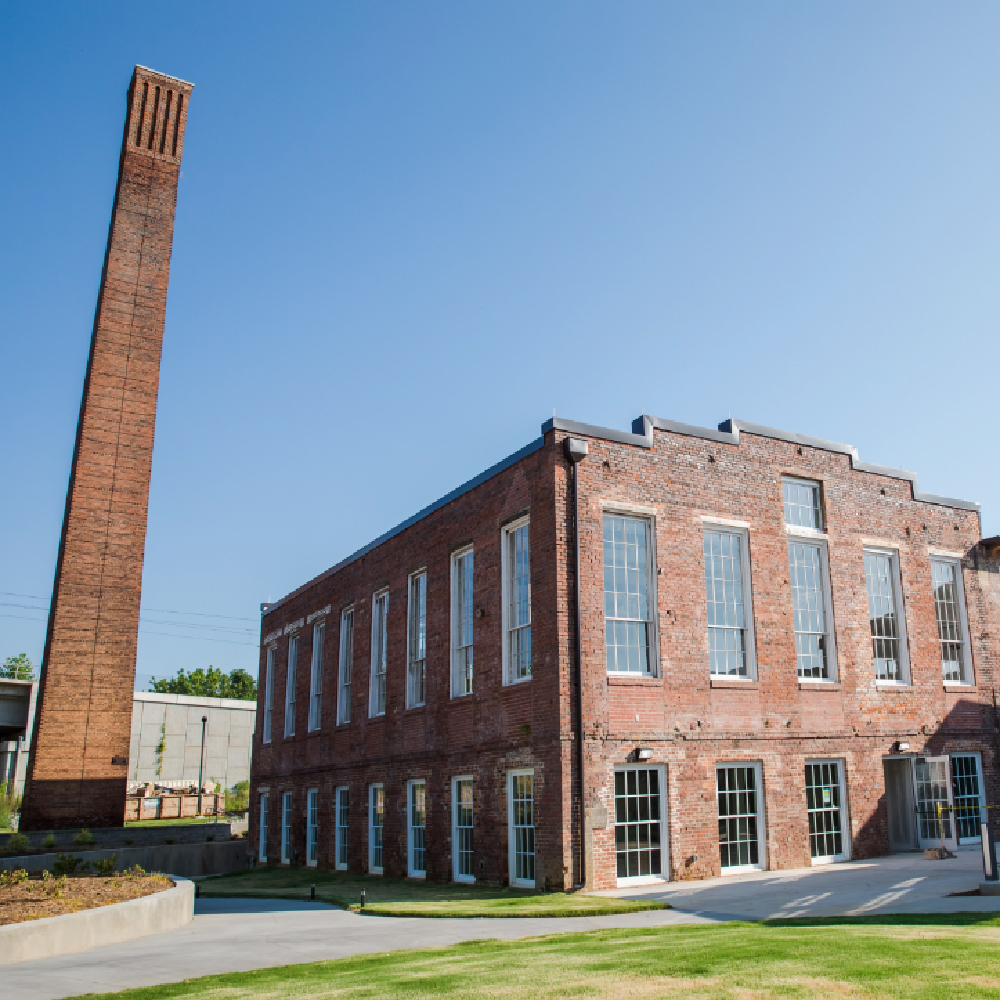
Optimist Hall
“Previously called Highland Park Gingham Mill and Highland Park Mill #1, Optimist Hall was originally home to Charlotte’s largest textile mill. Built in 1892, the plant’s signature smokestack was added three years later to service a boiler room. By the early 1900s, the Highland Park Manufacturing Company—which also owned Highland Park Mills No. 2 and 3—had become the nation’s third-largest producer of gingham….White Point Paces Partners purchased the property in 2016 with the vision for an adaptive reuse project that would give Charlotte its first food hall and also provide distinct, modern office space to a business community hungry for change. The north side of the development became home to Duke Energy’s Innovation Center in early 2019, while the food hall opened its doors later that same year.”

Optimist Hall
“Previously called Highland Park Gingham Mill and Highland Park Mill #1, Optimist Hall was originally home to Charlotte’s largest textile mill. Built in 1892, the plant’s signature smokestack was added three years later to service a boiler room. By the early 1900s, the Highland Park Manufacturing Company—which also owned Highland Park Mills No. 2 and 3—had become the nation’s third-largest producer of gingham….White Point Paces Partners purchased the property in 2016 with the vision for an adaptive reuse project that would give Charlotte its first food hall and also provide distinct, modern office space to a business community hungry for change. The north side of the development became home to Duke Energy’s Innovation Center in early 2019, while the food hall opened its doors later that same year.”
Latta Arcade
“The Latta Arcade is an indoor shopping arcade located at 320 S. Tryon St. in Charlotte, Mecklenburg County, North Carolina. It was built in 1914 to include a two floor atrium with stores and restaurants. There is a glass skylight over the atrium, which was originally used to allow natural light for grading cotton.”
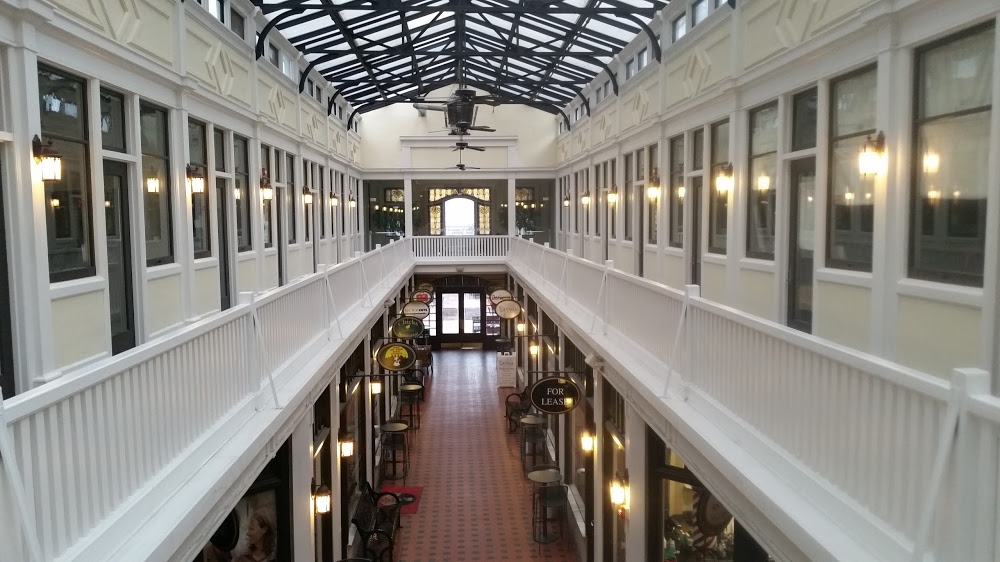

Latta Arcade
“The Latta Arcade is an indoor shopping arcade located at 320 S. Tryon St. in Charlotte, Mecklenburg County, North Carolina. It was built in 1914 to include a two floor atrium with stores and restaurants. There is a glass skylight over the atrium, which was originally used to allow natural light for grading cotton.”
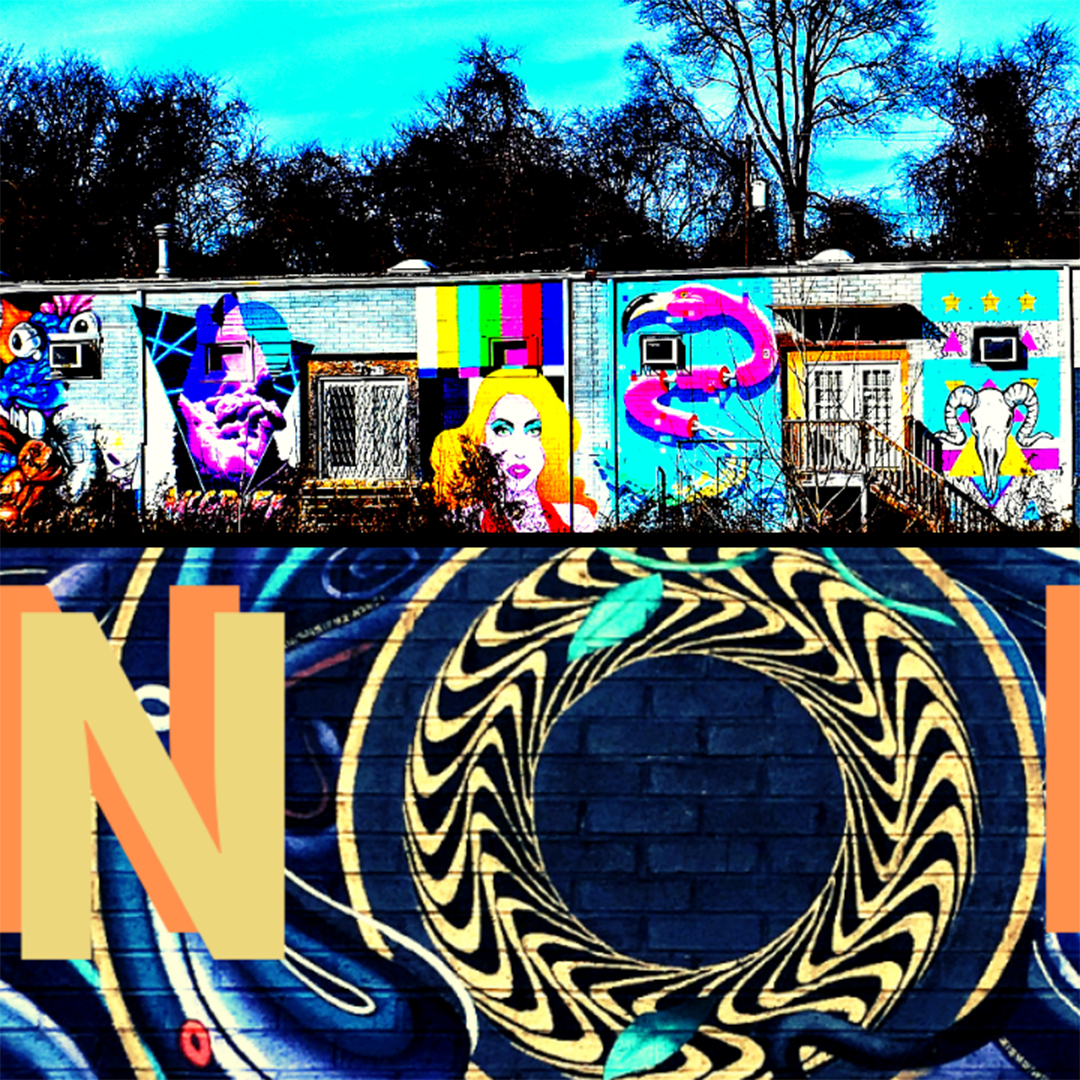
NoDa
“NoDa is Charlotte’s historic arts and entertainment district. NoDa is home to all walks of life and an array of talented artists and musicians. Whether you are looking for craft beer, award-winning food, custom gifts, or tattoos, you’ll find what you need in NoDa.
Above all, the residents of NoDa are dedicated to promoting the arts, living eco-friendly lifestyles, and supporting small businesses. The NoDa Neighborhood and Business Association is focused on encouraging diversity and promoting culturally enriching events for the neighborhood.”

NoDa
“NoDa is Charlotte’s historic arts and entertainment district. NoDa is home to all walks of life and an array of talented artists and musicians. Whether you are looking for craft beer, award-winning food, custom gifts, or tattoos, you’ll find what you need in NoDa.
Above all, the residents of NoDa are dedicated to promoting the arts, living eco-friendly lifestyles, and supporting small businesses. The NoDa Neighborhood and Business Association is focused on encouraging diversity and promoting culturally enriching events for the neighborhood.”

